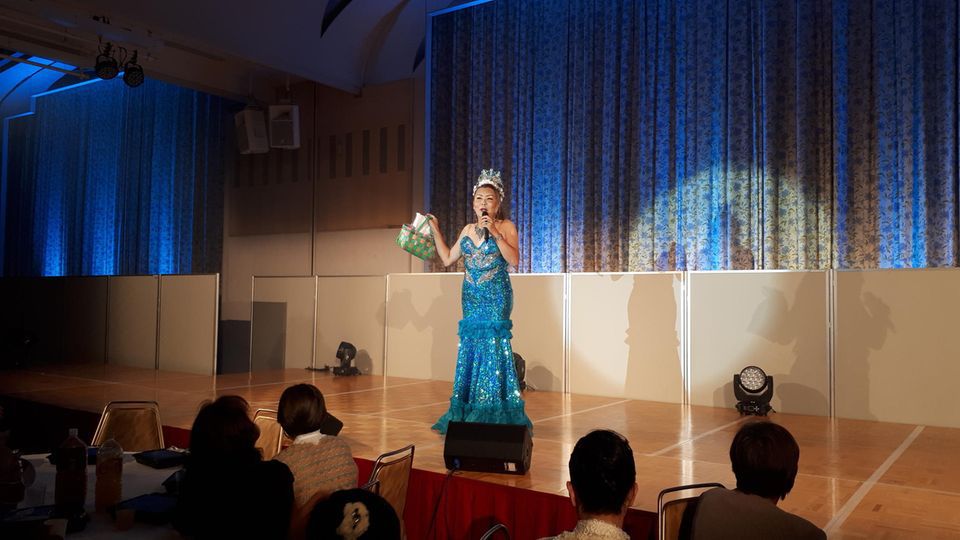100th anniversary
Japan commemorates the 145,000 victims of the Kanto earthquake – and a film of the massacre that followed
A museum was dedicated to the earthquake in Tokyo, the “Great Kanto Earthquake Museum”
100 years ago, the earth shook at Japan’s account level. More than 100,000 people died. Hundreds of Koreans were killed after the disaster. A feature film depicts the brutal story that followed the earthquake.
The death surprised people at lunchtime. Food was cooking in the kitchen when the earth buckled and the ovens tipped over. 145,000 people died on September 1, 1923, when a 7.9 magnitude earthquake struck the Kanto Plain on Japan’s main island of Honshu and a subsequent firestorm hit the capital, which was densely built with traditional wooden houses reduced Tokyo and large parts of Yokohama to rubble. On the 100th anniversary of the “Great Kanto Earthquake”, the Japanese commemorate the many dead, as they do every year. On the other hand, the memory of the horror that followed the quake has faded and been suppressed: massacres of Koreans – and those Japanese who were mistaken for it because of their dialect.
Shortly after the earthquake, unjustified rumors spread among the country’s frightened populace that Koreans – and Chinese – were poisoning wells, looting and burning. According to experts, state authorities played a central role in spreading these rumours. The Empire’s Interior Ministry, then exercising brutal colonial rule over the Korean peninsula, declared “kaigenrei” (martial law) and ordered the police to maintain public order.
“Japan 1900”
Japan shortly after opening: vintage photographs show the original country
Within days, there were massive assaults and lynchings by the police, military, and vigilantes—mainly ethnic Koreans, but also Chinese and Japanese who were mistaken for Koreans, as well as Japanese socialists and communists. Officially, around 260 people were murdered at the time, but unofficial estimates put the number of murder victims at around 6,000.
Many Japanese still deny the murders to this day
Japanese politicians and right-wing circles have repeatedly denied or downplayed the massacres. Since 2017, Tokyo Governor Yuriko Koike has repeatedly expressed skepticism that the massacres took place. Organizers of a ceremony to commemorate the Korean victims of the quake, scheduled for September 1 in Tokyo, recently asked the city government to send a letter of condolence to Koike on the 100th anniversary. She did that in 2016 when she was elected. Not since then.
“We’re not good at reflecting on our history,” complains renowned Japanese documentary filmmaker Tatsuya Mori, alluding to Japan’s general lack of coming to terms with its wartime past. He wants to change that. His first feature film “September 1923 (Japanese: ‘Fukudamura Jiken’, in German: Fukuda Village Incident)”, which opens in small cinemas across the country on the 100th anniversary of the quake, is about one of the massacres that took place a few days after the quake played in the village of Fukuda near Tokyo.
It shows how traveling medicine vendors from Kagawa on the island of Shikoku with their young children are attacked by hysterical vigilantes because they are mistaken for Koreans because of their dialect. Anyone who pronounces Japanese words “wrong” is brutally murdered. The situation is the result of a fatal combination of chance, xenophobia and fear that leads to the slaughter.
Major film distributors rejected the feature film
The Japanese director says he first heard about the incident in Fukuda 22 years ago. At that time he was working for television. Even then he wanted to do a TV show about it. “But the TV stations didn’t agree with that,” he recalls. He then decided that one day he would make a movie instead. But when he pitched the project to the major film distributors a few years ago, “everyone said ‘no’,” says Mori.
Mori managed to get the project off the ground with executive producer Sanshiro Kobayashi, whom those in the know describe as fearless of criticism and hostility. He wants the film to show what good people are capable of when they act as a group, Mori said at a preview of the shocking film at the Foreign Correspondents’ Club in Tokyo.
“The majority is directed against the minority. This is how massacres and wars happen.” Under certain conditions, such as fear, people could do cruel things to others. “The keyword here is the group,” says Mori. “Human history is a repetition of this error”. This is especially true for Japan.
With “September 1923” he deliberately wants to draw parallels to today. He thinks it’s highly unlikely that the Japanese as a people could commit atrocities like in the movies today. On the other hand, even in Japan, with its still strongly group-oriented society, there is again hate speech, for example in social media, warns Mori. “I don’t think the situation has changed that much.”


